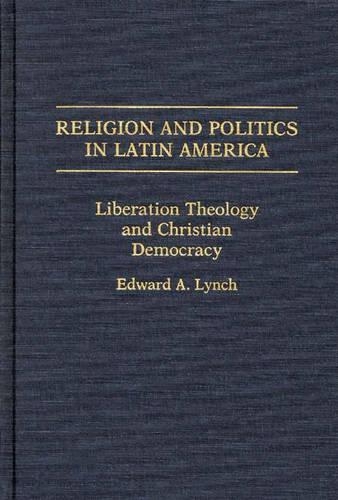
Religion and Politics in Latin America: Liberation Theology and Christian Democracy
(Hardback)
Publishing Details
Religion and Politics in Latin America: Liberation Theology and Christian Democracy
By (Author) Edward A. Lynch
Bloomsbury Publishing PLC
Praeger Publishers Inc
30th April 1991
United States
Classifications
Tertiary Education
Non Fiction
Philosophy of religion
Roman Catholicism, Roman Catholic Church
322.10973
Physical Properties
Hardback
216
Description
What drives religious people to act in politics. In Latin America, as in the Middle East, religious belief is a primary motivating factor for politically active citizens. Edward Lynch questions the frequent pitfall of Latin American scholarship - categorizing religious beliefs as a veil for another interest or as a purview just of churchmen, thereby ignoring its hold over lay peopkle. Challenging this traditional view, Lynch concludes that religious motivations are important in their own right and raises important questions about the relationship between religioun and politics in Latin America. Looking at the two most important Catholic lay movements, Liberation Theology and Christian Democracy, Lynch uses Nicaragua and Venezuela as case studies of how religious philosophy has fared when vested with political power. This timely study describes the motivations driving many important political actors. Divided into two parts, "Ideologies In Theory" and "Ideologies In Practice", it features a discussion of the theoretical background of the philosophies. Lynch finds that they are not as different as many scholars think; in fact, there are many parallels. He concludes that both philosophies face their strongest challenge from a revitalized orthodox Catholic social doctrine.
Author Bio
EDWARD A. LYNCH is an Assistant Professor of Political Science at Villanova University. He teaches Latin American politics and political theory on both the graduate and undergraduate levels. Dr. Lynch has conducted extensive research, and he has published articles in Terrorism: An International Journal, blius, This World and The Journal of Defense and Diplomacy.
